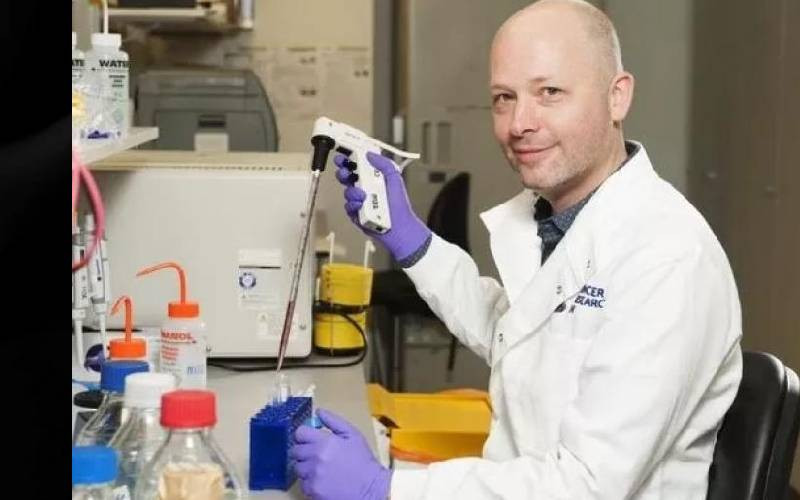
In a ground-breaking discovery, published in the American Association for Cancer Research journal, Cancer Immunology Research, Scottish scientists have unlocked the mystery of why the immune system of patients with bowel cancer fails to recognise and attack the disease.
Researchers at the University of Glasgow and Cancer Research have solved a decades-long conundrum revealing how bowel cancer blinds the immune system rendering it unable to destroy.
Bowel cancer, also known as colorectal cancer is a type of cancer that develops from the inner lining of the bowel; a part of the digestive system. It is usually preceded by growths called polyps which can develop into bowel cancer over time if they are not removed.
Depending on where the cancer originates, frequently the colon or rectum, bowel cancer may be referred to as colon or rectal cancer respectively. One of the challenges in treating bowel cancer is that the immune system often fails to recognise and attack the disease. This allows the cancer to grow and spread unchecked making it more difficult to treat.
As part of their work, the Glasgow-based researchers focused on a particular type of immune cell called gamma delta T cells. Polyps develop in the epithelial cells that line the inner surface of the bowel. T cells patrol this area attacking any threats such as damaged cells or small tumours before they cause harm.
"Normally, immune cells keep things as they should be, patrolling the bowel like security guards, tackling any harmful bacteria and keeping the gut healthy. However, when cells in the bowel become cancerous, they fire these 'security guards' and all the methods these immune cells use to talk to each other to coordinate an immune response no longer get produced.
Cancer doesn't want immune cells recognising them as a threat, so they manipulate the immune cells so that they can't see the threat and simply pass on by leaving the cancer to do its damage," said Dr Seth Coffelt who led the research.
- Nairobi West Hospital starts local production of cancer-tracing isotopes
- Iron deficiency: Health crisis mostly affecting women and children
- Beyond medicine: Initiative restores dignity and hope to cancer patients and survivors
- Hope for cancer patients as hospital introduces nuclear treatment
 The Standard Group Plc is a multi-media organization with investments in media
platforms spanning newspaper print
operations, television, radio broadcasting, digital and online services. The
Standard Group is recognized as a
leading multi-media house in Kenya with a key influence in matters of national
and international interest.
The Standard Group Plc is a multi-media organization with investments in media
platforms spanning newspaper print
operations, television, radio broadcasting, digital and online services. The
Standard Group is recognized as a
leading multi-media house in Kenya with a key influence in matters of national
and international interest.











